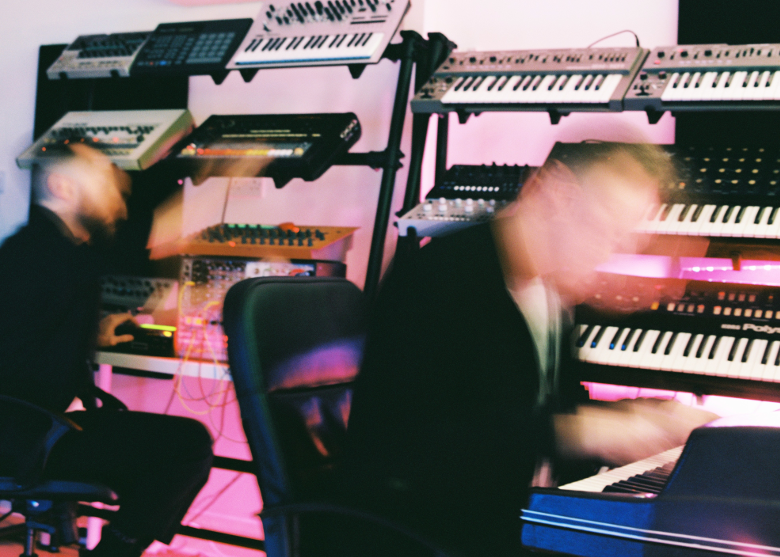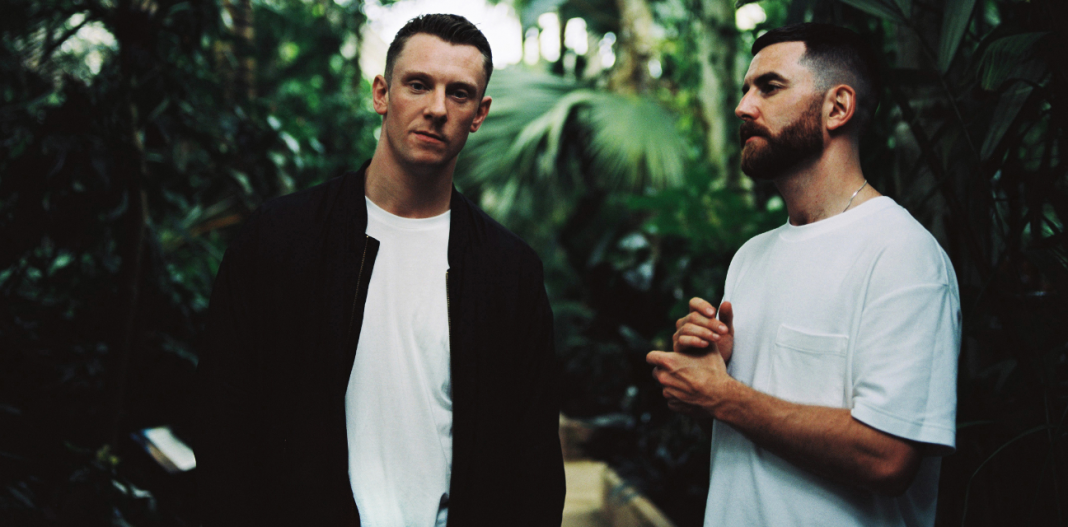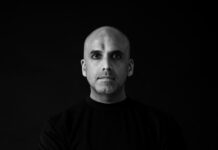With that in mind, how do you see your first EP Darwin from 2010 retrospectively?
Andy: Darwin is still all right. There are aspects of the old tracks that I don’t like, but at the same time the naiveness… You have to go through those periods to get to the other side. We’d listen to music and try and replicate it in a sense, but after a while you start doing your own thing with it. You just have to understand it before you can start doing your own thing, I think. That was a period of learning from other people’s music.
Matt: A lot of people we know would have had five years of making music and not sharing it. Obviously people are very nervous to send their tracks out, certainly some of our friends were. And we’re the opposite. We were sending out stuff that we hadn’t even mixed down or produced properly. The EPs on the Throne of Blood label were mixed completely on headphones. My very first edit [„Strawberry“] that came out on Ghost Town Records was mixed down on laptop speakers. Because I just didn’t know!
So you simply sent your tracks to Throne of Blood and they released it?
Matt: Pretty much. For us it was essentially learning in public. In retrospect, when we did the 1990s house stuff, it was just rehashing stuff from that era. We weren’t really thinking about ourselves as artists or producers, we were just DJs who enjoyed having stuff to play out that was new. Through the success we became more aware of it. We stopped for a bit, bought a lot of gear and started again.

With all the references to past decades in your music, does it feel more natural to use analogue gear instead of VST plug-ins?
Matt: Whilst we’ve got a lot of equipment, we only use two to three synths on a track. So it isn’t just a room open up for mayhem. One of the important points of getting into using machines is, you can give a song a character by the restrictions you put on it.
Andy: It’s also about the processing. What we’ve got really into is trying to use the synths that everyone knows, but get them to sound different. The [Roland] Juno[-106] is running through guitar pedals, for example. We’ll use modern machinery like the modular and then use it to control the Juno or run the Juno through it. We try to think more creatively, rather than just using a straight up arpeggiator.
Matt: That became the thing over the last year and a half, buying guitar pedals. I just love them. In rock music guitar pedals are standard, that’s how you get the character. But they’re rarely used for synth chains, which is weird, because they sound so good.
Considering that you prefer hardware synthesizers for production, do you mainly DJ with vinyl?
Matt: We do Italo Disco parties where we play vinyl only. They are fun, but to be honest, for us DJing with USB really works well, because we play a lot of our own edits and remixes, stuff that’s not ever going to be released. We’d work on music for the album all through the week. Then on Friday we spend the last three hours of the day just quickly doing two or three edits in order to being able to play them that night, instantly. We play it for a couple of weeks and that’s it, because at this day and age everyone’s playing the same, more or less. All these track ID groups…
…where your edits are extremely sought after. And people are pissed off because nobody is able to identify certain tracks you play out.
Matt: Yeah, exactly (laughs). As a DJ, I’m a bit sceptical of these groups. You spend weeks in record shops and you find this great track that you’ve never heard before. You play it out and then a poo YouTube video of it shows up online, twenty people share it and everybody starts playing the track.
Andy: We’ve had that a few times and it’s just annoying.
Matt: So for us it’s like, well, you know what? We’ll make our own stuff and not release it. It’s not about not sharing the tracks, because you’re playing them out, but it feels like you’re giving your own input into the set. It makes DJing exciting again.





